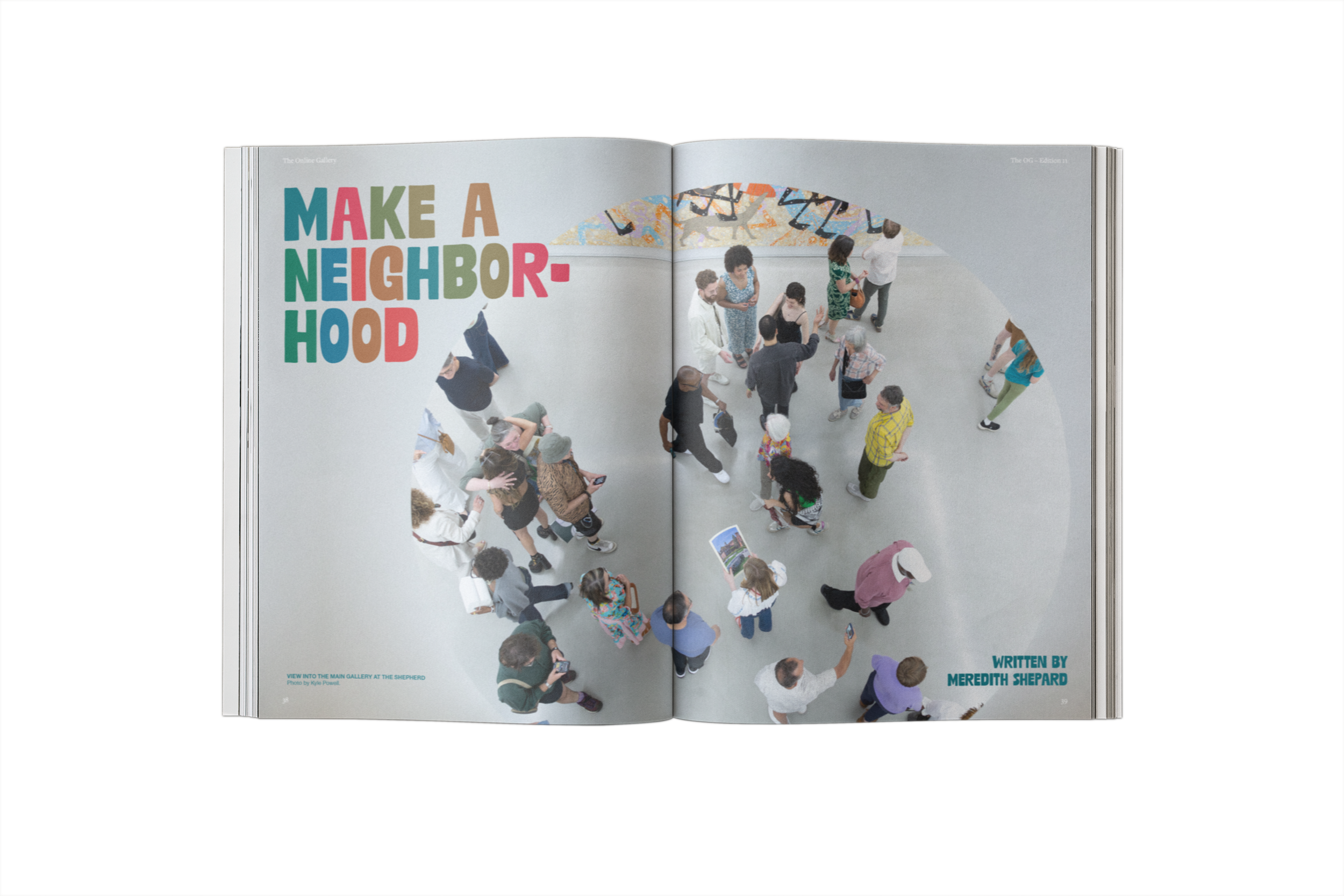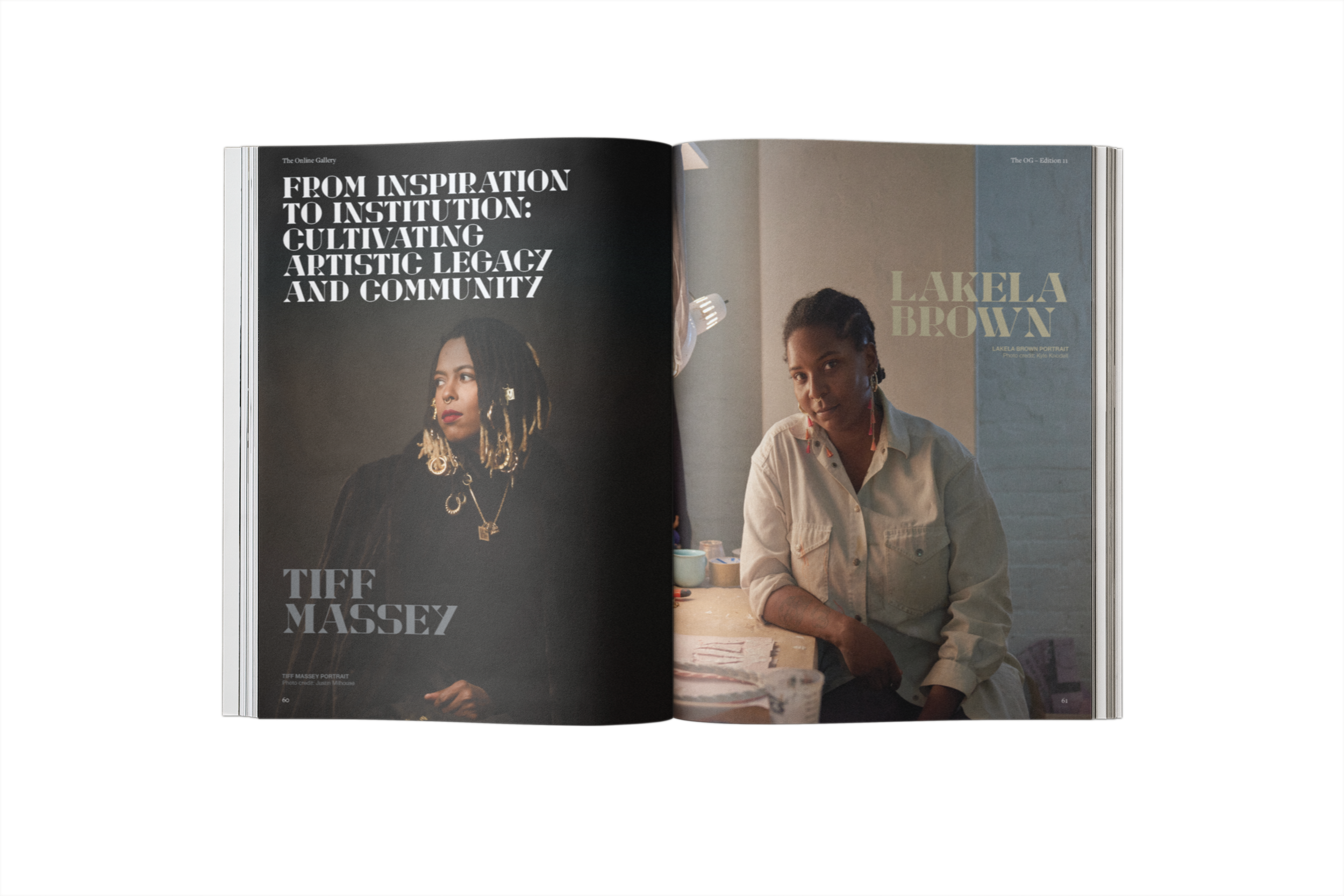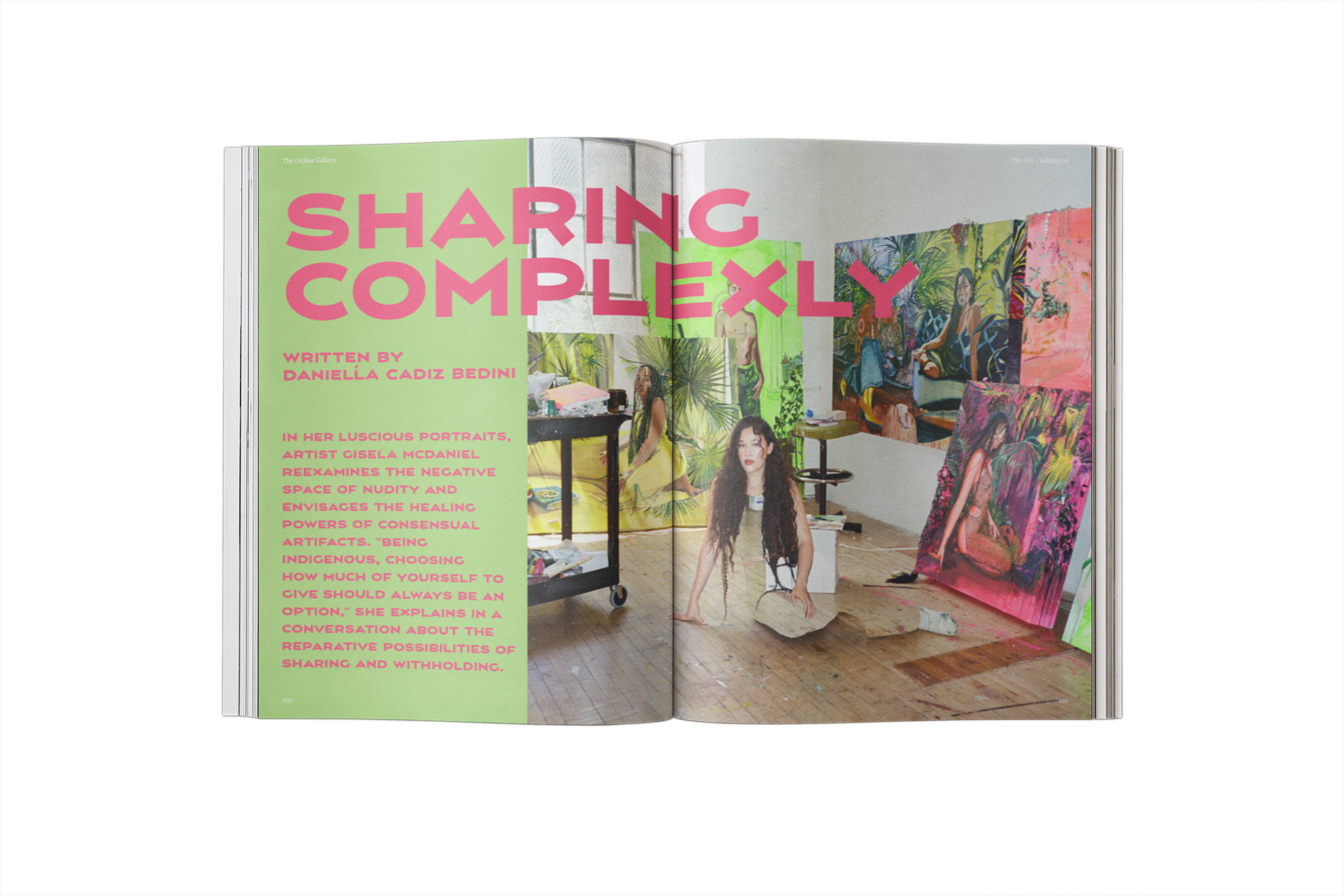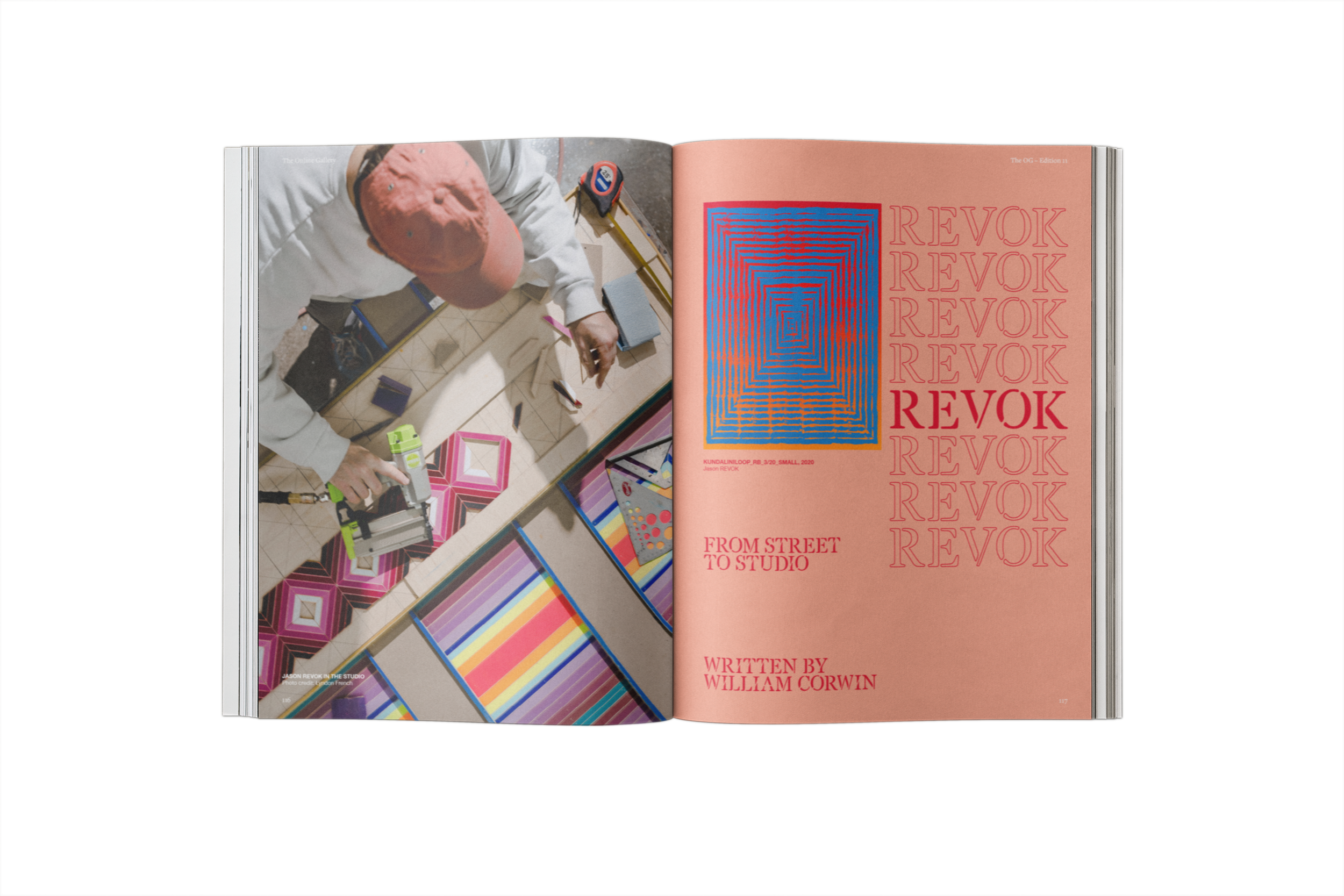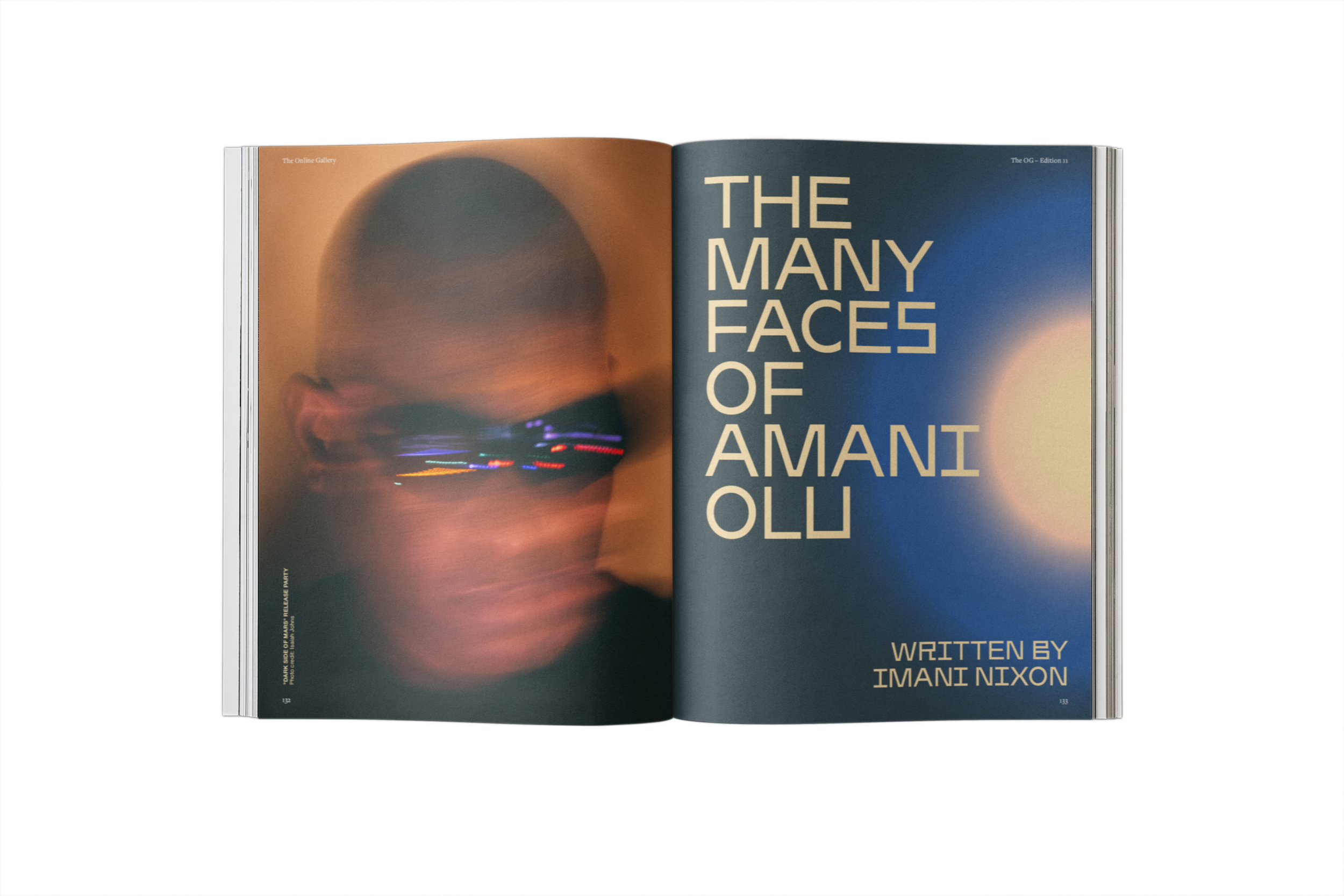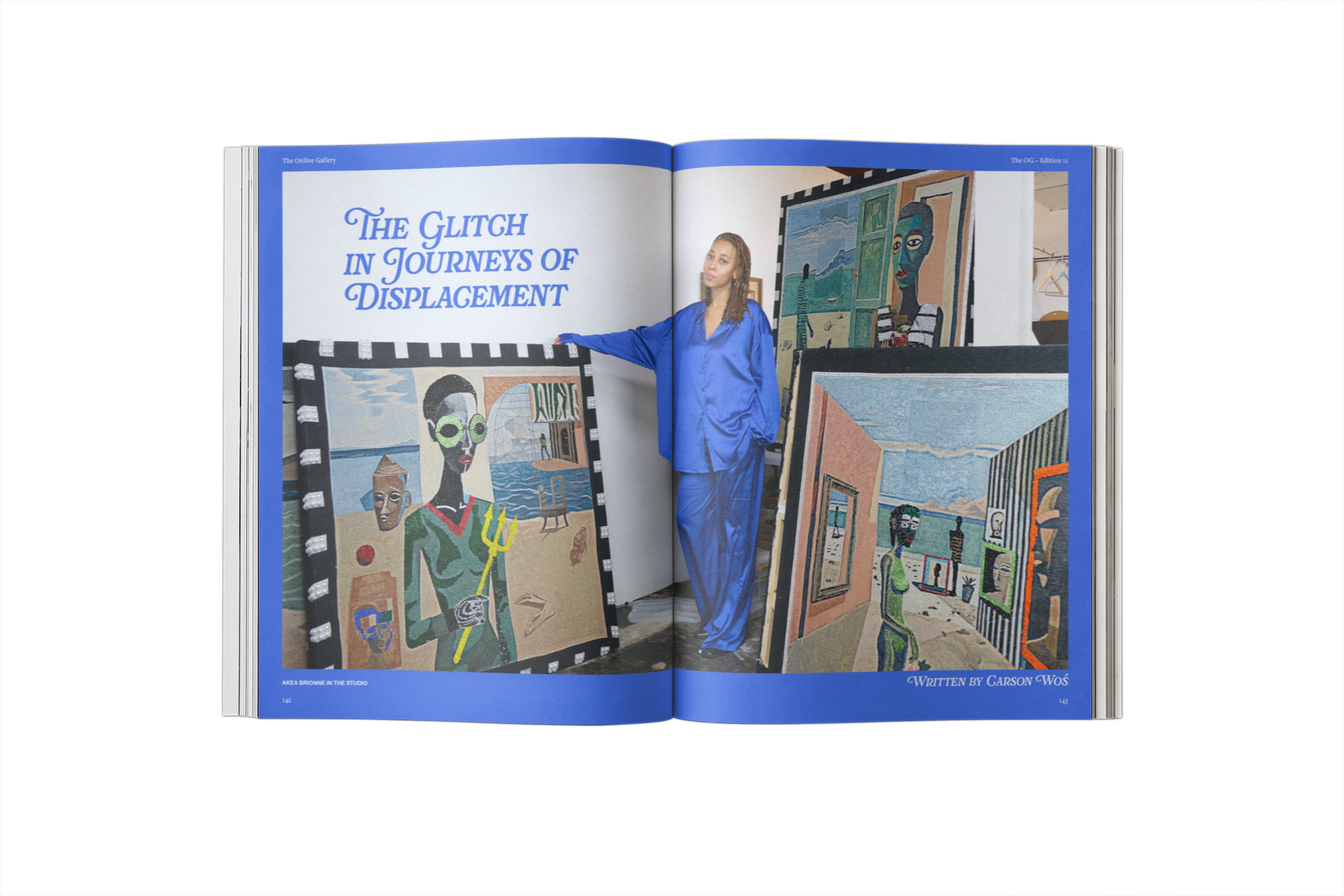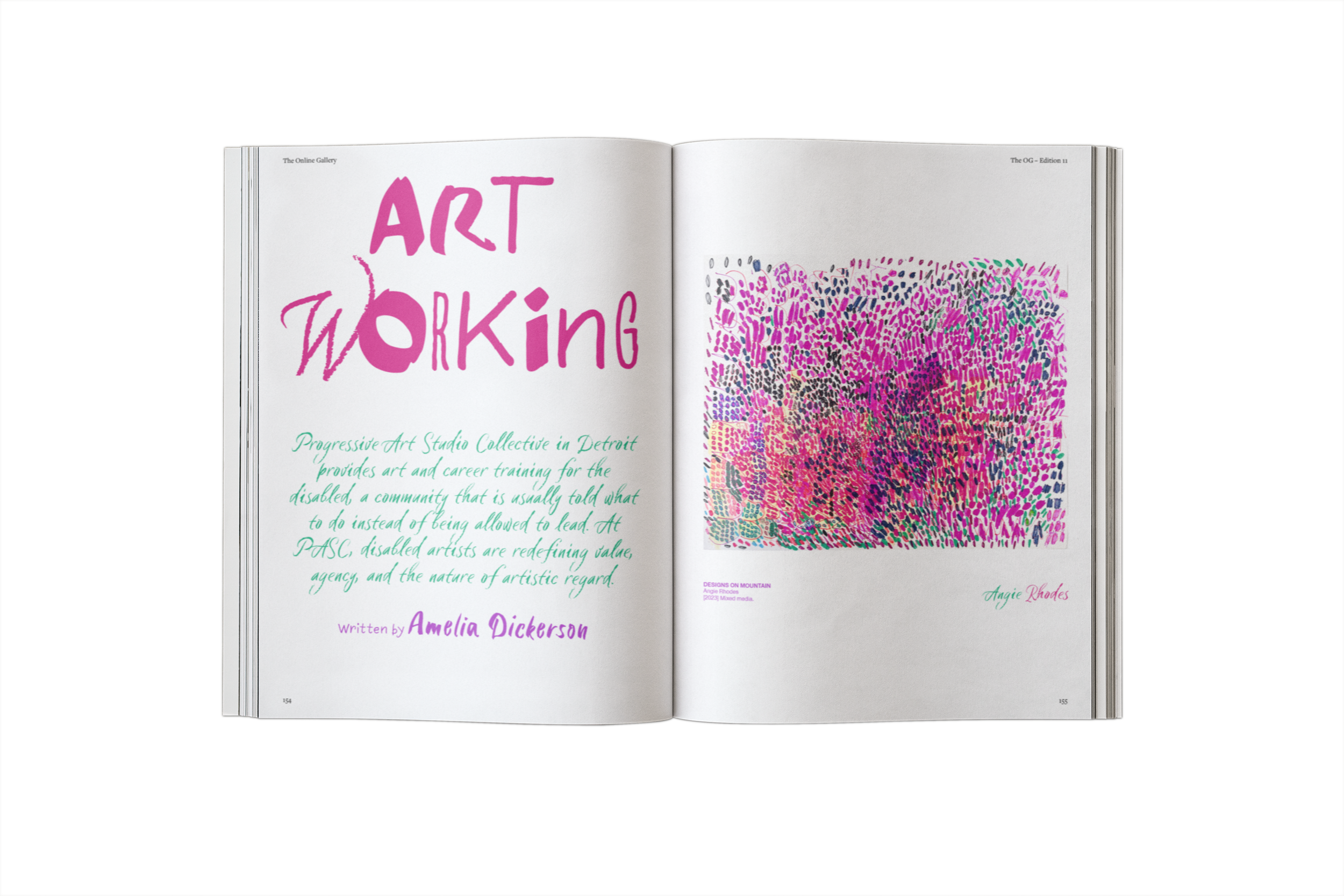Edition 11 takes us on the road to Detroit, where we team up with exhibition and programming behemoth Library Street Collective to co-curate some of the key talent emerging from their urban landscape. From their first show with REVOK in downtown Detroit to their current exhibition honoring local legend Charles McGee at the remodeled grounds of the Shepherd, Library Street Collective plays a major part in the booming Detroit art scene that has been building over the past decade. Their contributions have been instrumental in building major art careers, such as Tyrrell Winston’s, and in fostering inclusive community initiatives like the Progressive Art Studio Collective. Library Street Collective’s dedication to supporting artists of all backgrounds exemplifies the spirit of Detroit’s dynamic art culture. We invite you to discover in this edition the remarkable talent and stories that define Detroit’s ever-evolving art landscape.
Front & Back Cover Artwork By: Tyrrell Winston
Edition 11
FEATURED
FEATURED
TYRRELL
WINSTON
Tyrrell Winston's work draws deeply from street culture, merging urban debris with themes of identity, memory, and sports. Starting with cigarette butts, crack vials, and deflated basketballs found on New York streets, Winston’s art transforms discarded objects into powerful reflections of lived experiences. His assemblages, like the basketball nets he replaced in playgrounds or the cigarette butts arranged into sprawling displays, capture the hidden stories within everyday waste. As his career evolved, Winston’s collaborations with brands like Reebok and Stone Island reflect a seamless blend of street authenticity and high art. Grounded in materiality and personal narrative, his work resonates with the spirit of the streets while engaging with broader themes of fame, sports culture, and the transient nature of objects. Now based in Detroit, Winston continues to push boundaries, balancing his gritty beginnings with projects that explore the intersection of art, product, and community-building
LIBRARY STREET
COLLECTIVE
Anthony and JJ Curis have redefined Detroit’s art landscape, blending urban renewal with artistic innovation through their Library Street Collective. Starting as outsiders to the art world, their gallery and public-facing projects reflect a deep commitment to community engagement and cultural preservation. From repurposing an abandoned church into the Shepherd, a vibrant arts hub complete with a skate park and residency program, to fostering collaborations with artists like McArthur Binion, their work bridges art, architecture, and social impact. Each project reflects their belief that art can be a powerful tool for change, breaking down barriers and creating accessible spaces that serve the public. Rooted in Detroit’s rich history and diverse neighborhoods, the Curis’s efforts are a testament to art’s potential to inspire connection and transform communities, while staying true to the city they call home.
LAKELA BROWN &
TIFF MASSEY
Tiff Massey and Lakela Brown sat down with curator Allison Glenn, Artistic Director of The Shepherd, for a thoughtful discussion on identity, representation, and the unique dynamics of Detroit's art scene. Massey, whose work draws from hip hop culture and metalsmithing, reflected on how her upbringing in Detroit and experiences as a Black woman inform her creative practice. Brown, known for exploring Black identity through adornment and cultural artifacts, shared insights into how her work engages with heritage and materiality. Together, they explored how Detroit provides a vital platform for authentic Black expression, challenging conventional narratives of race, gender, and power, while Glenn guided the conversation toward the importance of creating accessible spaces for artists of color to engage their communities and showcase their work.
MARCO
CASTILLO
Marco Castillo's work bridges Cuban Modernism and critical reflections on the socialist utopia, weaving together design, politics, and personal history. As a former member of Los Carpinteros, Castillo delves into the aesthetic legacies of Cuba’s revolutionary period, examining how its ideals both shaped and betrayed the nation's creative vision. His solo projects, including Aberración IV and Yab Yum de pared, engage with themes of identity, militarization, and the distortions of political propaganda, inviting viewers to contemplate the complexities of Cuban history. Through his research and art, Castillo revives forgotten Cuban designers and craftspeople, restoring their place in modernist design while connecting their work to his own. His exhibitions, like The Hands of the Collector, fuse nostalgia with critique, reflecting both a longing for and disillusionment with the revolution’s promises. As he continues to explore the materiality of the socialist utopia, Castillo’s practice underscores the tension between utopian ideals and their tangible, often fraught, realities.
GISELA
MCDANIEL
Gisela McDaniel's art redefines the boundaries of portraiture and intimacy, inviting viewers into a vibrant dialogue about consent and identity. Her lush oil paintings, such as Living More and Banidosa, celebrate Indigenous narratives while challenging the extractive traditions of representation. By centering her subjects—often nude or partially clothed—in rich tropical landscapes, McDaniel emphasizes the power of choice in self-representation, asserting, “Being Indigenous, choosing how much of yourself to give should always be an option.” Her collaborative approach, rooted in storytelling and respect for her sitters, fosters intimate connections that transcend conventional art-making. As she embarks on her residency in Paris to focus on the rematriation of Pacific cultural artifacts, her work highlights the reparative potential of art, making her vibrant portraits powerful affirmations of resilience and community that celebrate agency and connection.
JASON
REVOK
Jason Williams, known as REVOK, navigates a fascinating journey from California's streets to Detroit's crumbling landscapes, where he redefines his artistic practice. Initially rooted in graffiti, his signature eight-line tag embodies both the competitive spirit of street art and the introspective nature of abstraction. With no formal artistic background, REVOK found inspiration in album covers and skate culture, following the paths of graffiti legends like RISK. Legal issues in California led him to seek refuge in Detroit, prompting a shift toward studio work that embraced the beauty of urban decay. Influenced by artists like Gerhard Richter and avant-garde composer William Basinski, REVOK intertwines his street art roots with gallery practices, evolving into a multifaceted artist who explores themes of identity, memory, and urban transformation.
AMANI
OLU
Amani Olu, also known as Scott Avery, represents the transformative essence of Afrofuturism through his musical evolution from Philadelphia to Detroit. Originally Brian Scott Caesar, Olu embraced various identities, including Azim Bahir Muhammed within Philly’s Islamic community. His artistic journey began in 2014 with the provocative “Reasonable Doubt” exhibition in New York, but it was his relocation to Detroit in 2016 that reignited his passion for music, influenced by local legends like Aux88. His debut EP, Child Self, honors his musical roots, while his latest project, Dark Side of Mars, introduces MK2680, a fictional Martian experiencing the birth of Detroit techno. With a focus on rhythmic experimentation, Olu aims to craft a unique sonic identity that bridges his heritage and Detroit's vibrant culture, embodying a dynamic exploration of self and future possibilities.
AKEA
BRIONNE
Akea Brionne’s tapestry works intricately weave personal histories and cultural memory, exploring themes of displacement and the complexities of identity. Utilizing a blend of textiles and photographic processes, Brionne highlights memory gaps, technological glitches, and the passage of time, contrasting the immediacy of modern photography with her meticulous wet-collodion technique. Her artworks, including Trinity’s Trident (2023), Three's Company (2024), and Shadow Muse #1 (2024), merge her photographic training with textile art, challenging linear perceptions of time and representation. Through her jacquard tapestries, she celebrates individual identities, creating rich, emotive pieces that evoke personal narratives while requiring an in-person experience to fully appreciate their depth and the intangible energy she imparts to her work.
PROGRESSIVE ART
STUDIO COLLECTIVE
The Progressive Art Studio Collective (PASC) in Detroit empowers disabled artists to redefine value, agency, and artistic regard in a society that often dictates rather than listens. Founded during the COVID-19 pandemic, PASC provides art and career training in an inclusive environment where artists lead their creative processes, fostering a sense of ownership and dignity in their work. Through the support of art advisors, artists like Alsendoe Owens and Ronald Griggs have explored new styles and subjects, moving beyond initial limitations to express their unique visions. The recent move to the Lantern Space, a dedicated studio and gallery with abundant natural light, further enhances this creative growth, enabling artists to showcase their work with the recognition it deserves. PASC not only facilitates artistic development but also cultivates a community where disabled artists can thrive, pushing against societal barriers and celebrating their contributions to the art world.



